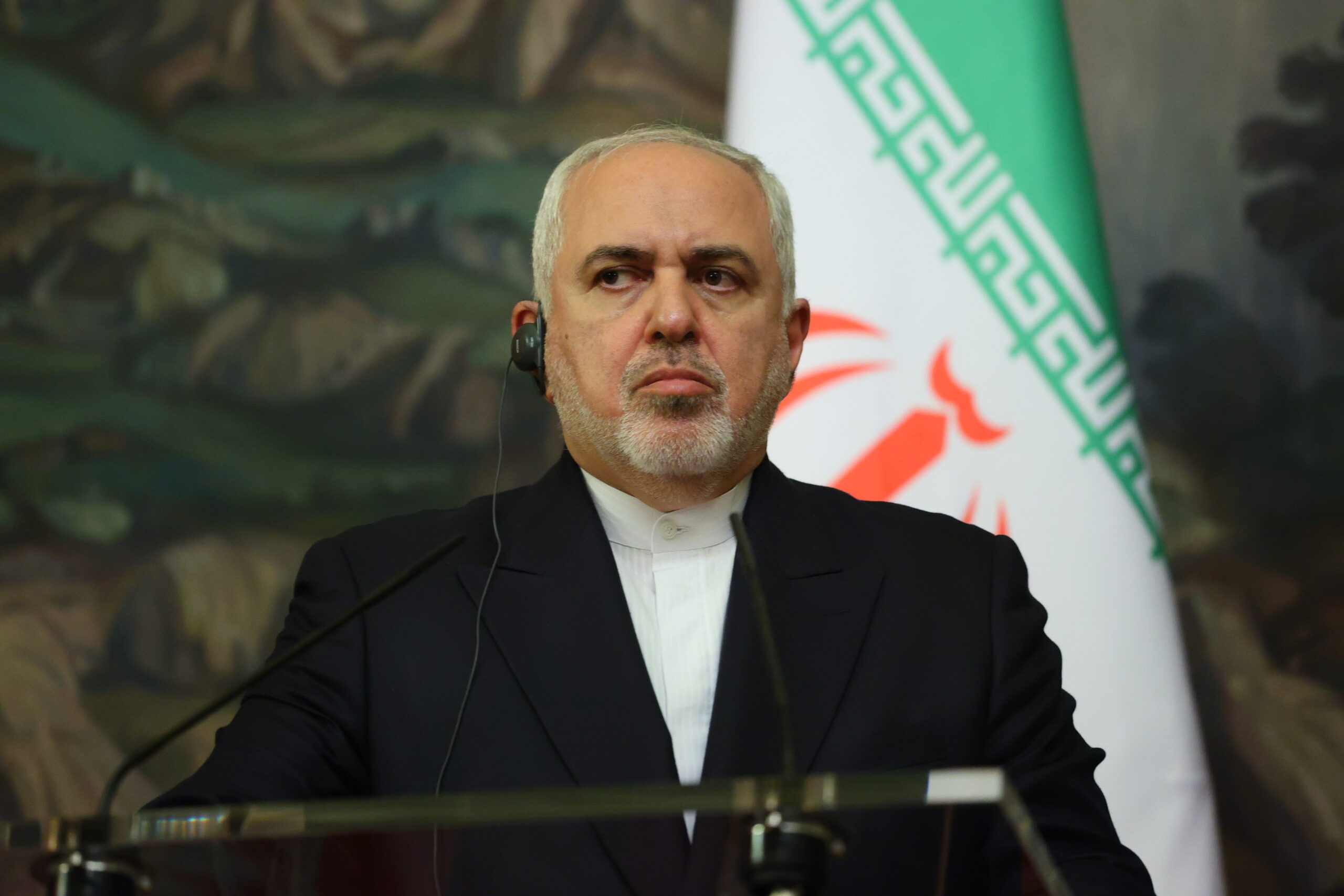Zarif’s comments on power struggles within the Iranian establishment have proven controversial.
Tehran, Iran – A leaked interview in which Foreign Minister Mohammad Javad Zarif frankly discusses behind-the-scenes manoeuvres in Iranian politics has stirred fierce conversation and debate ahead of the country’s presidential elections in June.
More than three hours of audio from an interview in March with government-aligned journalist and economist Saeed Leylaz was anonymously leaked to Farsi-language media outside Iran on Sunday.
Foreign ministry spokesman Saeed Khatibzadeh said the original interview was seven hours long, part of an oral history project that also includes interviews with other ministers, and urged people to analyse it with caution as it may have been leaked for political purposes.
In the interview, Zarif repeatedly uses “the field” in reference to military operations and politics driven by the outward-looking Quds Force of the Islamic Revolutionary Guard Corps (IRGC), and its then-leader Major-General Qassem Soleimani – who was assassinated in an American-ordered drone strike in Iraq in January 2020.
According to the foreign minister, “field operations” never budged to give way to diplomacy, even as Iran was in talks that ultimately led to its landmark 2015 nuclear deal with world powers that lifted multilateral sanctions.
Instead, diplomacy was, on many occasions, “sacrificed” for the advancement of field operations across the region.
Ground forces in Syria
Soleimani visited Russia in 2015 and met with President Vladimir Putin to discuss intervening in Syria’s civil war in support of President Bashar al-Assad.
Zarif provides a completely different account of what happened in that meeting in the leaked recording, saying it was Putin who convinced Soleimani to bring Iranian troops to Syria, rather than Soleimani convincing Putin to intervene.
“Putin entered the war with air forces, but also brought Iran into the war with ground forces. Until then we had no ground forces there,” Zarif said.
The foreign minister said he first heard it from his then-US counterpart John Kerry that flag carrier Iran Air flights to Syria had increased six-fold by order of Soleimani, something even the transport minister was unaware of at the time.
Moreover, Russia actively tried to undermine the nuclear deal, the Joint Comprehensive Plan of Action (JCPOA), as it did not benefit from Iran enjoying normalised ties with the West, according to the diplomat.
“We have to have relations with Russia and China, just as we have to have relations with the West, just as we shouldn’t have tensions with the US,” Zarif said.
“But I believe our ties with other countries should be conducted with open eyes. It benefits Russia that there will be no crisis in our ties with the West, but Russia doesn’t benefit if our ties with the West are normalised.”

Nuclear talks resume
Talks to restore the JCPOA following the 2018 unilateral withdrawal of the US have been ongoing in Vienna for weeks.
Delegations headed back to the Austrian capital on Monday to resume negotiations focused on lifting US sanctions and putting curbs on Iran’s nuclear programme.
Zarif also said that, in January 2020, top Iranian security and military officials were immediately aware that a Ukraine International Airlines flight was struck down by two IRGC missiles over Tehran.
The foreign minister said he attended a meeting with security chief Ali Shamkhani and Chief of Staff of the Armed Forces Hossein Bagheri two days following the incident, where he was harshly scolded when he asked whether Flight PS752 was downed by missiles.
“They said go post a tweet and deny it,” Zarif said, an order he rejected.
The IRGC ultimately admitted it accidentally fired at the aircraft due to “human error” as tensions with the US were high in the immediate run-up to the IRGC firing missiles at two US bases in Iraq in retaliation for Soleimani’s assassination.
Zarif also said two Quds Force operatives informed Iraq of the incoming missiles 45 minutes before, but the foreign minister was only told two hours after the attack was launched.
After the interview was leaked, it quickly dominated online discussions as “Zarif” shot to the top of topics trending on Farsi-language Twitter.
Tehran lawmaker Ahmad Amirabadi Farahani vowed in a tweet that the parliament will conduct an investigation into the leak, and will “introduce the traitors to the country and nation to the judiciary”.



